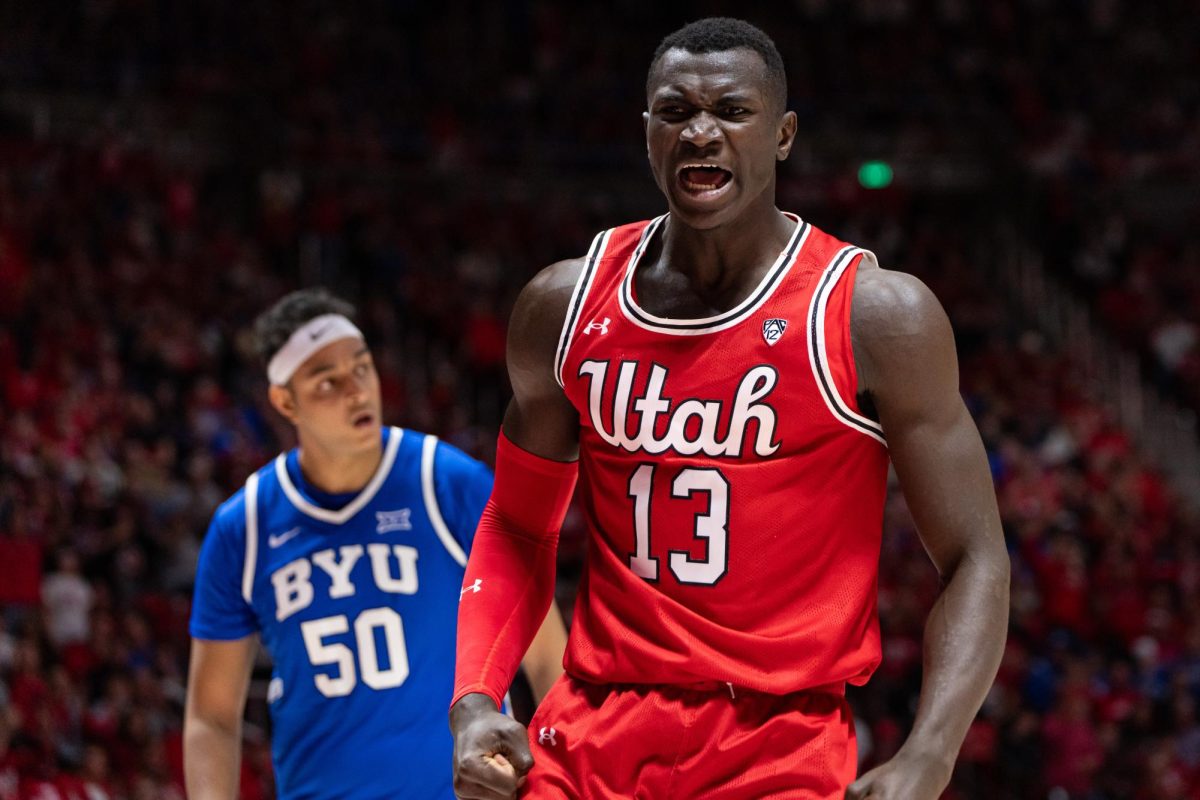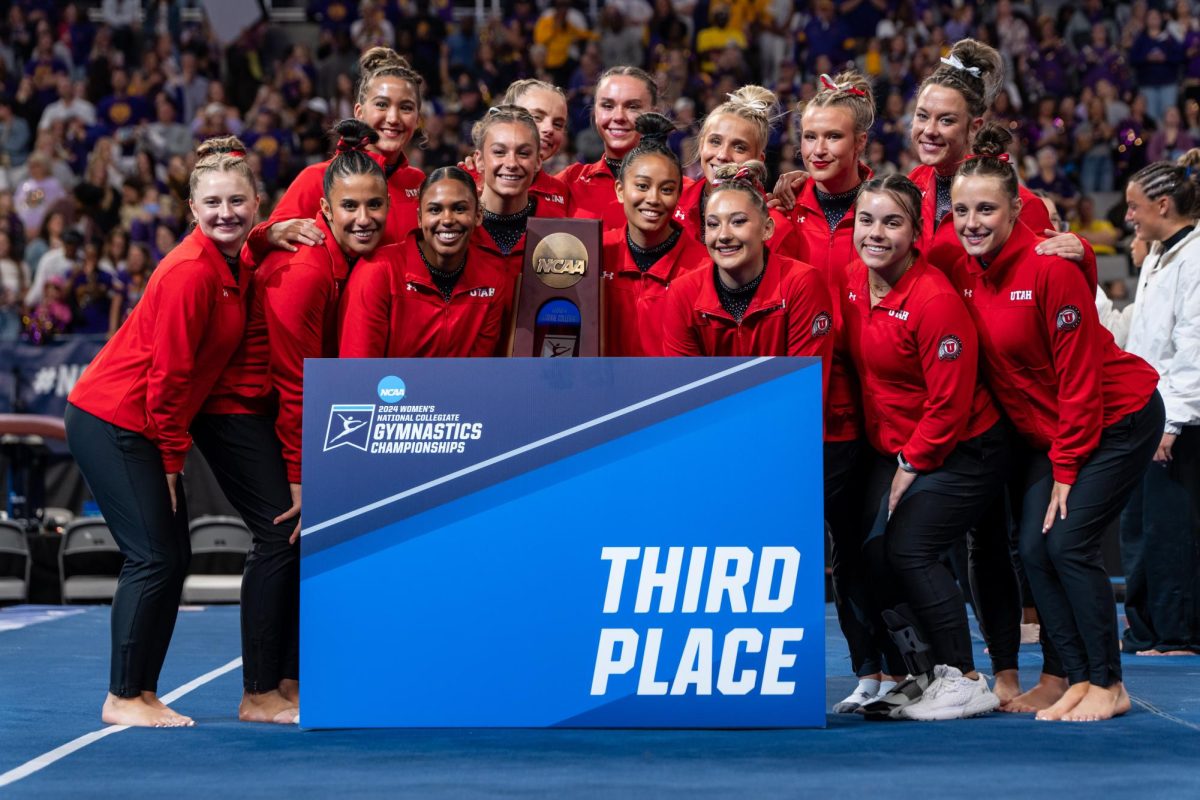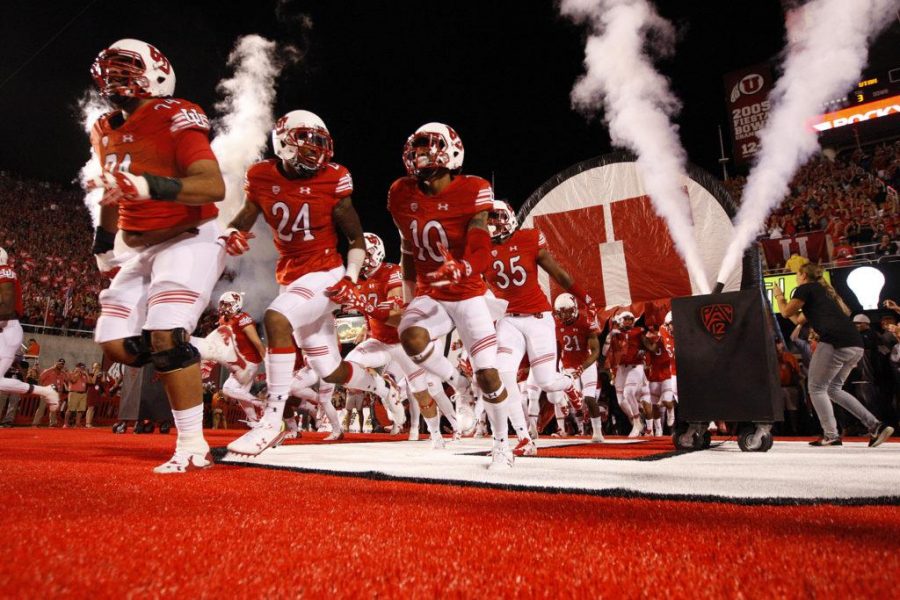College athletics is big business. In fact, the state of Utah’s highest paid public official is Kyle Whittingham. Millions of dollars are spent updating stadiums, training facilities and other areas of athletic departments, all for “amateur” athletes to compete. Money is flooding into these athletic departments and the athletes benefit in many ways, but do athletes deserve to be paid for what they do?
This is an argument that has been perpetuated for decades. Obviously, the idea of the student-athlete has been flipped to the athlete-student, and the NCAA regulation that 50 percent of student athletes have to graduate is very loose, but in order to keep the façade of a student-first mentality, college athletes are not “paid.” Stipends are starting to be circulated for food and other essentials, but athletes are not paid for what they do. They should be paid, and here’s why.
Athletes work more than most students. The NCAA has a regulation that is intended to limit training for players to 20 hours per week. Would you be surprised to learn that very few athletes reported only practicing 20 hours per week? According to an NCAA survey conducted in 2011, Division I football players averaged 43 hours a week. Baseball came in second with 42.1 hours and men’s basketball came in third with 39.2. These are in-season numbers. This means that on top of class work and homework, athletes are working a full-time job.
Sure, many of these athletes are on scholarship, which pays for their tuition and room and board in most cases, and we’ve covered the stipends, which average between $2,000 and $5,000 annually. Let’s get real. How many of us can live off of $2,000 a year? To put this in context, let’s say I work for a company that offers tuition assistance. Let’s say that this company offers to assist my whole tuition for being a full-time employee, but my paycheck every two weeks works out to be $77. Could I live off that? Even as a full-time employee with access to the employee cafeteria? I don’t think many of us could, yet we expect athletes to do so.
The university makes money because of the athletes. Let’s talk for a second about Johnny Manziel. Yes, Johnny Football is definitely not the beacon model behavior for student-athletes, but there was an instance during his time at Texas A&M where he was suspended (albeit for a half against an inferior opponent) for allegedly selling merchandise with his autograph on it. According to NCAA bylaw 12.5.2.1, players are forbidden from permitting “the use of his or her name or picture to advertise, recommend or promote directly the sale or use of a commercial product or service of any kind.”
That’s interesting when you look around town and see images of football players, basketball players and gymnasts on billboards to sell tickets. I guess as long as their image is making the right people money, bylaws are not in effect.
Paying athletes could actually keep them in school.
College basketball allows players to declare themselves eligible for the NBA draft after their freshman season, if they so choose. In football you can declare for the NFL three years after graduating from high school, so essentially after your junior season of college.
If college athletes were paid for the talents that they possess while in school, they might be more willing to finish their degree, just on the off chance that the sports path doesn’t work out for them. Many players cite financial hardship as the reason that they declare early for the draft, and who can blame them? For most athletes coming from low-income situations, college is just a time that they are a horse on a cart, all the while the carrot of a professional contract is being dangled in front of their face.
Obviously, there are those who want to preserve “the purity of amateur sport”, and paying athletes would tarnish that. The reality is athletes are working full-time jobs for an average wage. While the institutions they are attending are getting rich, they are missing out on their pay day.












